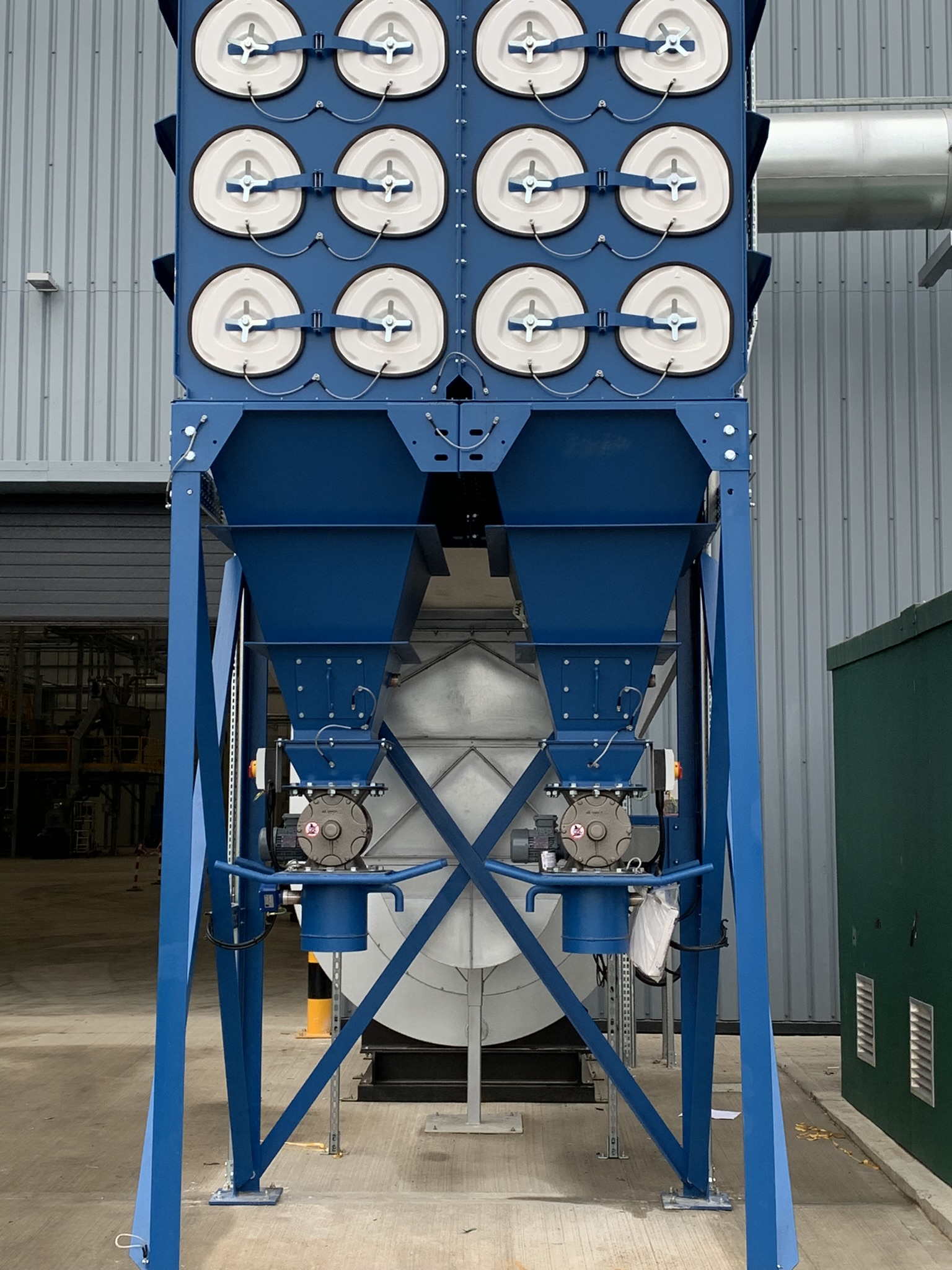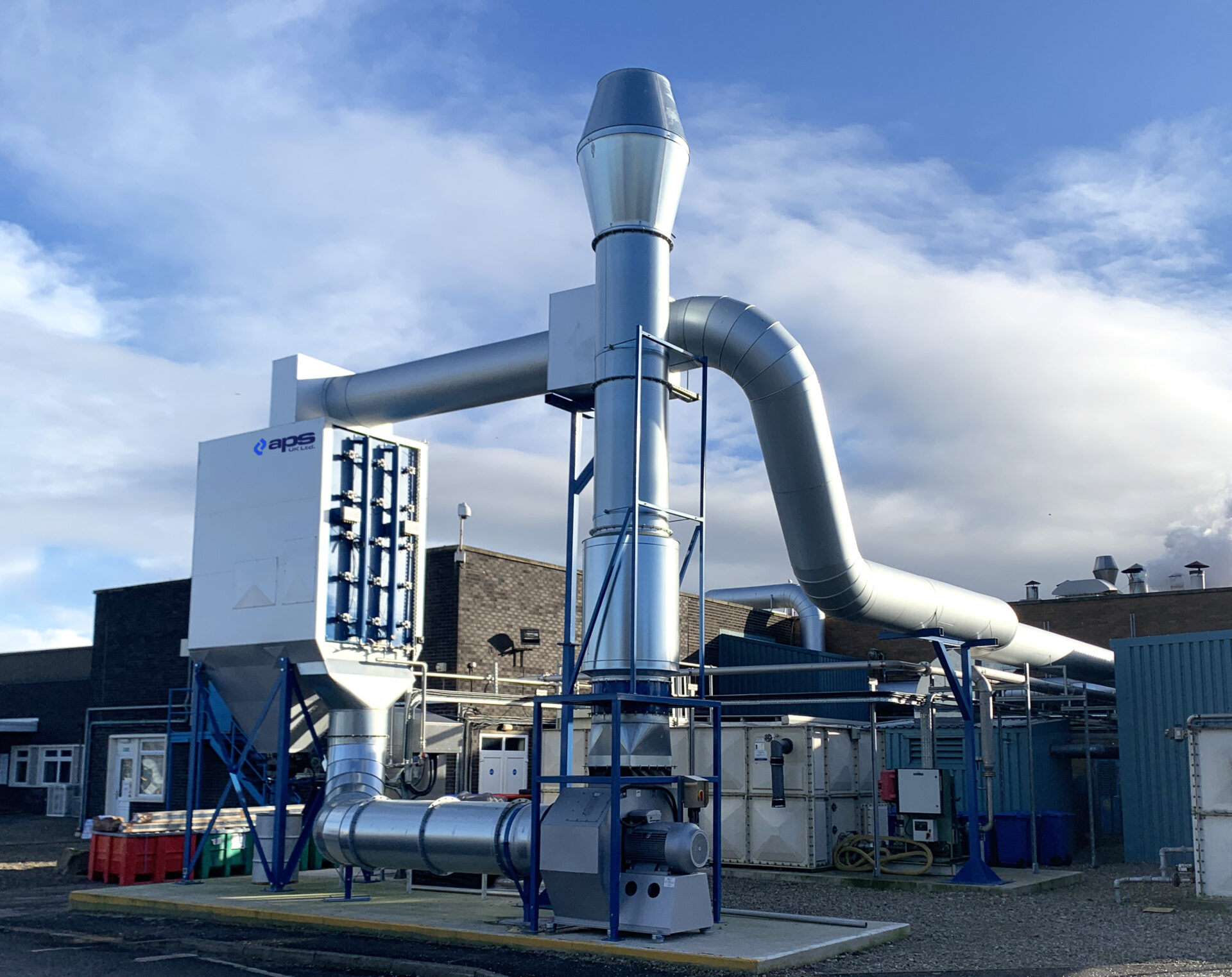A guide to dust extraction and conveying for waste management
Matt Brown | Published September 18th 2025 | Updated October 2nd 2025
Effective waste management is vital in the manufacturing industry, with dust extraction keeping workers safe, pneumatic conveying systems boosting material value while cutting costs, and advanced solutions reducing the environmental impact of waste for a greener future.
With over 12 million tonnes of packaging waste generated per year, and 2.2 million tonnes of that coming from plastics, high-quality waste management is becoming ever-more important.
Whilst plenty of businesses are happy to make significant investments to their processing equipment, in an effort to gain or maintain a competitive edge, many frequently miss the importance of handling the waste that inevitably arises from their operations.
At APS we provide comprehensive waste handling solutions for a wide range of industries, including those operating in the plastic production and recycling sectors.
Whether you’re looking to increase the safety of your team on the factory floor, or you’re looking to reduce your maintenance costs, we’ve handily broken down how dust extraction and pneumatic conveying services address challenges in waste management.
How does a dust extraction system keep my waste processing team safe?
Dust extraction systems protect your workforce and factory environmental from harmful particles released into the atmosphere during the handing, preparation, and separation of waste.
They’re an essential part of delivering high quality waste management, helping you to comply with legislation like COSHH (Control of Substances Hazardous to Health) and Dangerous Substances and Explosive Atmospheres Regulations 2002 (DSEAR), which regulate how employers control potentially dangerous substances, like dust and fumes, in the workplace.
We helped a major UK plastic packaging manufacturer to reduce the significant amounts of dust generated whilst recycling food-grade plastic, something which posed potential risks to both the operational efficiency of the machinery and the overall air quality within the facility.
Our team developed a full turnkey solution and installation, encompassing essential dust extraction components including ductwork designed to capture and convey dust, filter units capable of trapping and removing particulate matter, and strategically placed fans to ensure optimal airflow and extraction efficiency.
This system effectively reduced dust levels, creating a safer work environment for the firm’s employees, whilst mitigating the impact of dust on the machinery, and ensuring the factory met environmental regulations.
By making your factory environment clean and dust free, not only will you keep your workforce safe and happy, but you’ll also see a more efficient production line, with a focused, energetic team.

Can a pneumatic conveying system increase production efficiency?
Another important part of waste management, a pneumatic conveying system is a method for transporting dry bulk materials, and helps to increase production efficiency by streamlining the processing of waste materials.
We recently worked with a leading UK PET preform recycler, Roydon Granulation, to implement a comprehensive cleaning and conveying system, which addressed concerns regarding dust and fines within their granulated PET material.
We introduced a custom system which replaced an older granulated blower with an efficient vacuum system which directed the material towards the inlet of a de-dust KIA Aspirator, which is designed to separate light impurities from granulated plastic.
Remaining dust particles were picked up through an anti-static system, while a twin-bag station was set up to handle various sizes of flexible intermediate bulk containers (FIBC’s) and collect dust and fines efficiently.
This system dramatically enhanced the quality and value of the PET, meeting the client’s objective of producing consistently high-quality preforms. It also minimised the material movement between processes, resulting in reduced labour costs, and allowed for further cost savings through its lower maintenance needs.

How can effective waste management systems help reduce environmental impacts?
Effective waste management reduces a company’s environmental impacting by minimising residual waste (the materials left over once recyclables have been removed), and promoting a circular economy by maximising the quality, and therefore reusability of processed materials.
Pneumatic conveying helps prevent material loss and contamination, contributing to resource efficiency, whilst high-quality dust extraction systems are designed to be energy-efficient, reducing the overall energy consumption of industrial processes, and therefore minimising a business’s carbon footprint.
Where can I hear about APS’ solutions for effective waste management?
At APS, our core waste handling services and expertise lies in air separation equipment, pneumatic technology, dust extraction, and the re-introduction of waste materials into the production process.
We help firms to significantly enhance their production efficiency and eliminate bottlenecks through tailored solutions focused on enhancing the value of process waste, reducing the work staff must do, and helping keep the factory environment as clean and safe as possible.
We’re excited to be showcasing our solutions at this year’s Recycling Expo, at the Excel in London, at stand DD51.
Our expert team, including Adrian Ogden, Sherrie Ogden, Matt Brown, and Rebecca Lee will be on hand to talk you through how we can help you effectively manage the waste from your manufacturing processes.
Email us to set up a meeting, and register here to attend the event for free.

We Consult
Understanding is key. We take the time to grasp your specific requirements, ensuring solutions tailored just for you.

We Design
With your needs as our blueprint, we craft designs that are both functional and in step with modern aesthetics.

We Install
Our team prioritises a smooth, efficient installation process, minimising disruption while focusing on optimal safety outcomes.